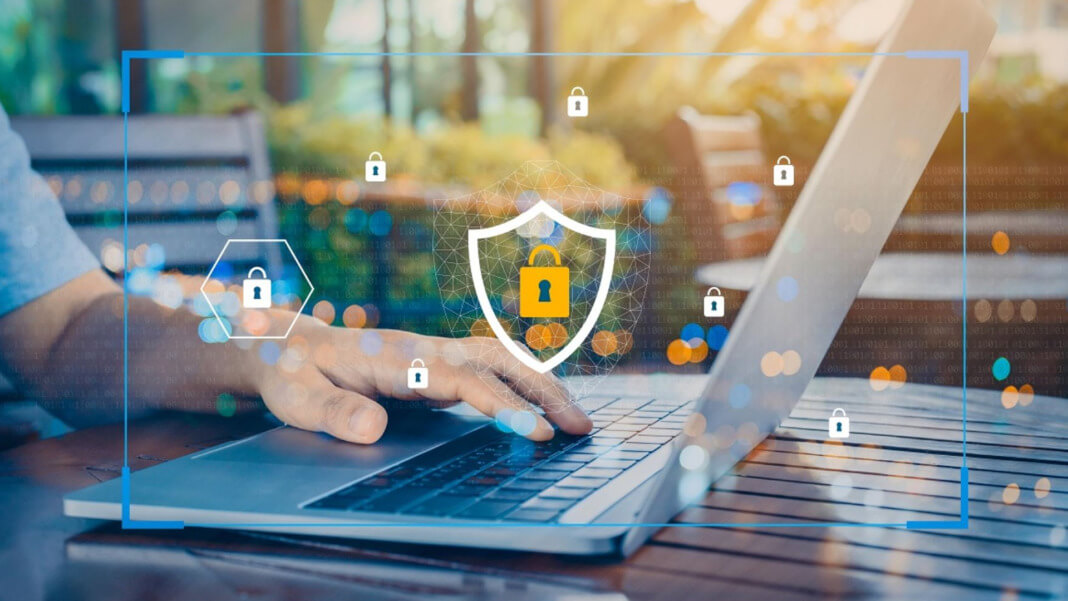Is blockchain another trending buzzword, or is it worth all the hype and attention it’s getting? Simply put, blockchain is a distributed ledger technology (DLT) that makes every digital asset you can imagine traceable and recordable. Furthermore, the data in the chain can’t be changed, which makes it perfect for some industries like cryptocurrencies, cybersecurity, and much more. This article will dig deeper into blockchain and how it affects your life.
What is blockchain?
It is impossible that you haven’t heard about blockchain technology. The term has been gaining enormous popularity in the last couple of years, especially in relation to cryptocurrencies. The technology behind the term is related to storing transactional data records. Those pieces of data are called “blocks.” And they are coming from multiple databases called the “chain.” The whole recording of those blocks distributed in the “chain” is called a “digital ledger.”
One of the main benefits of the blockchain is that, by default, the data In it can’t be changed. Even though the data is not centralized, it is transparent and traceable through cryptographic hastings.
You can imagine a drive that you can just share with people. In this case, you are creating a decentralized folder that includes different pieces of information. Everyone who has the proper rights can access it and modify it even simultaneously. All the modifications will be saved, and it will be possible to check who changed what and when.
Blockchain is similar to some extent. It is a database where the “blocks” are stored, forming a giant “chain.” This database is distributed and by that being decentralized. This allows everyone to access it whenever they want from wherever they want. Again any changes that are made are recorded and make the technology transparent and secure.
You will have to use a digital signature that only the owner has to make any change. The modifications won’t be authorized without it, making the technology very secure. If there is any change in the ownership or the status of the data in the blockchain, this will be recorded, and everyone will be able to access those records.
A short history of blockchain
You might be amazed, but the first time that something like the protocols used by blockchain was mentioned was by David Chaum back in 1982. He was a cryptographer with some brilliant ideas that were later on in 1991, continued by Stuart Haber and Scott Stornetta in their work Consortiums. However, this technology didn’t gain that much attention back then.
When Satoshi Nakamoto announced the invention of Bitcoin and with it the first blockchain network, all the hype began. In any case, we can’t say that Satoshi was the inventor of blockchain or he is the owner of the technology. Similar to the Internet, this is not a technology you can own.
After the first successful Bitcoin transaction in 2009, the popularity of Bitcoin and blockchain grew extremely fast. Many companies invested in researching blockchain technologies and how they can benefit them.
What makes blockchain so popular?
A perfect example is cryptocurrencies. Let’s have a look over Bitcoin, for example. The use of Bitcoins makes everything perfectly traceable and easy to be checked at any moment. If you have to complete a bank transaction, you will usually have no clarity about what is happening behind the scenes and where your money is on its path to its destination. This makes it less transparent and less secure because something can go wrong at any point.
Using Bitcoin directly linked to blockchain technology, you will find it easier to deal directly with other individuals without the need for third-party services like banks. Each transaction of Bitcoins will be transferred through the digital ledger. Since it is based on peer-to-peer technology and each change of ownership is recorded – any transactions will be visible. The lack of third parties involved also makes it more secure. With the growing popularity of cryptocurrencies, blockchain technology has also become more popular.
Types of blockchains
Like any technology, blockchain has different types that have different uses. Let’s have a look over a couple of them.
Public blockchains
A public blockchain is a decentralized and open digital ledger. The records for any changes in a public blockchain are recorded and can be accessed by anyone. Those transactions can even be validated by “miners,” who will receive rewards for doing this job. Bitcoin is an example of a public blockchain.
Private blockchain
As the name suggests, private blockchains are not accessible by everyone. To be part of it, you will have to have specific permissions given by the administrator. This is making the private blockchains centralized and less transparent. Hyperledger is an example of one.
Hybrid blockchain
This type is something between the two types above – public and private. Energy Web Foundation is an example of one. So part of the blockchain is open for the public, and others require an invitation from the administrator.
Sidechains
This is a blockchain that connects two main blockchains. In this way, users can move their “blocks” from one “chain” to another. Liquid Network is an example of a sidechain.
Benefits of blockchains
We already mentioned some of the main benefits of blockchains and why this technology is becoming more and more popular with time. Maybe the biggest one and the one making it so attractive is that it is highly secure. Each user has a unique digital signature that leaves traces when any transaction is completed. Those traces are put in the records that anyone can access.
Many people are tempted by the thought of having a technology using a decentralized system. Now, when almost everything is centralized and controlled by a couple of big entities, having a bit more freedom is really tempting. Blockchains are still regulated, but the technology works based on a mutual consensus between end-users, leaving most of the power in your hands.
Another benefit is automation – you can program your blockchain to do whatever you want. This is why many big companies are also investing in blockchain research and how it can benefit their businesses. This is also showing the enormous potential behind this technology. Maybe in a couple of years, it will be widely used in many aspects of our lives. And this takes us to our second main question – does blockchain affects you, and how?
How does blockchain affect you?
Right now, blockchain is now as widely used as you might think. Yes, people interested and involved in cryptocurrency are already taking advantage of this technology, but the rest of the people – not so much. However, many people believe that the progress of blockchain technologies will highly influence our future.
A considerable number of companies are looking for new ways to incorporate blockchain technologies into their business. It is anticipated that many industries will soon be relying more and more on it, for example, banking or security and healthcare industries.
Blockchain will allow people to exchange money more securely and transparently. On top of that, it will be way faster because you will be avoiding the bureaucracy around traditional banking as we know it now.
With the Internet of Things becoming a bigger part of our lives, we need to understand that having control of all of our devices might not be the perfect solution. Imagine if someone hacks your coffee maker, they will still be able to access all of your personal data. According to many IT specialists, blockchain might be the solution for that by decentralizing the control.
Security and healthcare can also benefit from this technology. Imagine if you have all your health records not stored in only one place that someone can hack and modify. You will have documents of all the actions that ever happened to your record, and the data won’t be possible to be modified by anyone without the correct digital signature. This can revolutionize the healthcare system by making records widely available, transparent, and secure.
Potential of blockchain
Even though blockchain technology is not something that new, there is still a lot of potentials to grow. Cryptocurrencies are just the start, and perhaps just like the Internet, blockchains will become part of our daily lives. The sky is the limit, so let’s wait and see what will be the next amazing thing to come with the help of blockchains.





